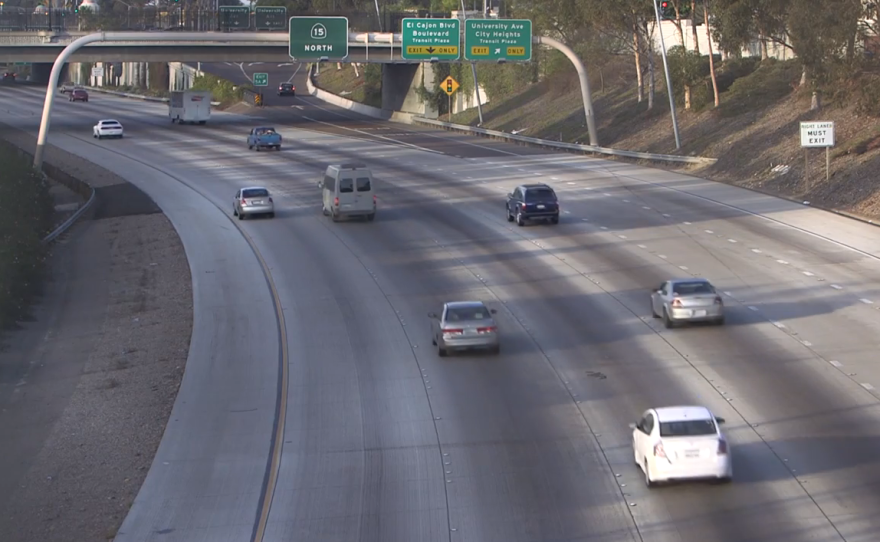The agency that plans how to expand San Diego County’s roads and transit systems has suffered a setback.
A California appeals court has ruled that SANDAG, San Diego’s regional transportation planning agency, has not adequately considered the environmental consequences of its 2050 Regional Transportation Plan.
Back in 2006, California legislators passed AB 32, which affirms the state’s commitment to lower greenhouse gas emissions to 1990 levels by 2020, the equivalent of taking approximately 15 million cars off the nation's roads.
Today’s ruling affirms a previous superior court decision that San Diego failed to analyze the difference between those goals and the outcome of its 2050 transportation expansion plans.
The court writes, “We uphold the right of the public and our public officials to be well informed about the potential environmental consequences of their planning decisions, before approving long term plans that may have irreversible environmental consequences.”
Several organizations, including the Cleveland National Forest Foundation and the Center for Biological Diversity, sued SANDAG, along with California's Attorney General, Kamala Harris. They argued the plan is too focused on expanding freeways and not enough on alternatives such as public transit.
Attorney Cory Briggs said the appeals court agreed that SANDAG did not take an adequate look at the alternatives, namely building things such as rail lines and bike paths before expanding roads.
"Nobody says you cannot build any roads,” Briggs said. “What we’ve said is for those projects, where there is a feasible transit alternative, you ought to be looking in depth at what that transit alternative is, to see whether it competes with your road building alternative."
Environmental attorney Marco Gonzalez of Coast Law Group said other government agencies, for example the Southern California Association of Governments(SCAG) in L.A., have produced plans that do meaningfully assess the increase in green house gas emissions, and possible ways to mitigate that.
SANDAG officials are currently reviewing the ruling. In a statement, the agency said, "Updates to RTPs are required every four years, and each time SANDAG performs an update it works to improve its plan."
SANDAG's board will decide next steps, but one option would be to appeal the case to California's supreme court. Since San Diego was the first metropolitan planning organization to produce a regional transportation plan under California's new laws, the case is precedent setting.






